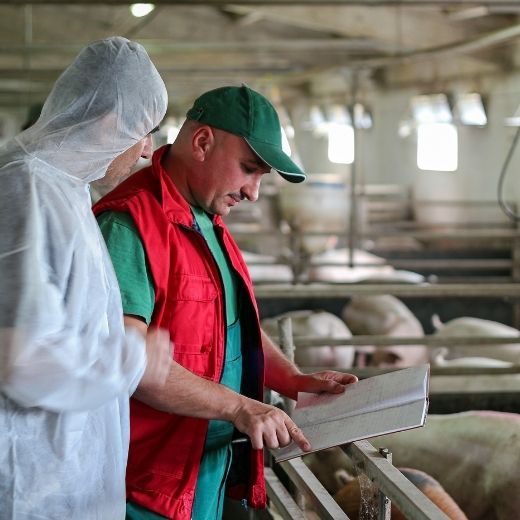Preparing for Disease Challenges
March 18, 2022 | Paul Bootsma

In August of 2018, the Chinese pork industry was hit with the African Swine Fever (ASF) virus, in effect eliminating up to 50% or more of the entire herd. China is the world’s biggest pork consumer and domestically produces the most pork, but it also imports significant amounts. The Canadian pork industry and government are hard at work to prevent a similar disaster from happening here.
Dangers of African Swine Fever
According to the Canadian Pork Council, ASF is “is one of the most severe viral diseases of pigs. Although the disease is not transmissible to humans and can’t be contracted by eating infected meat, “ASF is recognized by the global veterinary society as one of the major threats to pig production, food security and biodiversity in the world.”
Because of the severity of the disease, the Canadian pork industry is concerned about the possibility of causing huge losses for producers if the disease enters into Canadian territory. Should this become a reality, it will obviously impact the export of Canadian pork and pork products, specifically Ontario and Manitoba pork.
International borders could be closed to all Canadian pork movement. In the past, the government of Canada has worked with various commodity organizations to establish areas with boundaries to control disease spread and allow unaffected areas of the country to continue to export and move product. This was the case when BSE hit the beef industry. A similar approach should be taken with ASF.
Industry and Government Response
The pork industry has been working to prepare farmers for prevention and a situation of infection. The Canadian Pork Council has established protocols to help prevent the transmission of disease, hoping to eradicate the disease before it eradicates too many businesses. Ontario Pork has posters available online to raise awareness and reduce the risk of ASF. Government has also provided cost-share funding to producers, processors and others in the pork industry to improve biosecurity measures.
Not only are there protocols in place for on the farm, but supply businesses will also have to follow them to mitigate the transmission of the disease. Vehicles traveling from one farm to another is one of the ways a disease spreads. Obviously, farmers will need to be cautious about who enters their property. Biosecurity will need to be strictly enforced, which will have some impact on our broader society in specific places such as petting zoos or other places with animals. A major disease outbreak in animals will have significant implications for society and the economy.
Paul Bootsma is Member Relations Manager for the Christian Farmers Federation of Ontario. The CFFO Commentary represents the opinions of the writer and does not necessarily represent CFFO policy. The CFFO Commentary is heard weekly on CFCO Chatham, CKXS Chatham, CKNX Wingham, and CHLP Listowel.
 Skip to main content
Skip to main content